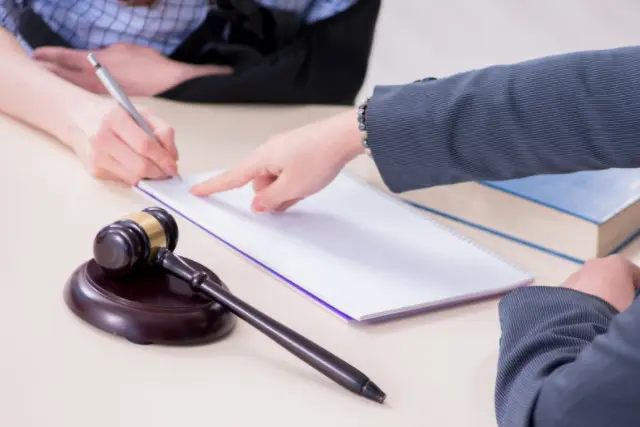Practice Areas

After a personal injury lawsuit has been filed, both the plaintiff and the defendant are allowed to conduct an investigation. This investigation is called discovery. One type of discovery is a deposition or a recorded interview with a set of written questions presented to witnesses before a trial begins. It is almost always given under oath. Whether or not you will be asked to participate in a deposition, or if a deposition is needed at all, is dependent on the facts of your case.
Many people will be hesitant to volunteer to undergo a deposition, so parties to the lawsuit or witnesses to the incident can be required by a subpoena to attend and answer questions under oath.
Having an attorney by your side during the deposition process is important, especially since anything you say is under oath and part of an official court record. If you have filed a personal injury lawsuit and have been subsequently subpoenaed, anything you say during that on the record testimony can be used to validate or discredit you if your case goes to trial.
Do Personal Injury Lawsuits Settle After Deposition?
The investigation period, during which depositions are taken, is the prime time for settling cases. As the opposing sides learn more about the case’s evidence, usually settlements will begin to be offered. However, logistically, there is no relationship between a deposition and a settlement. Instead, the determining factor is the favorability of facts and the likelihood of a successful personal injury lawsuit.
After all the depositions are completed, the defendant may file a motion with the court called a motion for summary disposition or judgment. This motion asks the Judge overseeing the lawsuit to rule that you do not have enough evidence to prove the claims you have listed in your lawsuit. If the motion is granted, then your case will be dismissed. If the motion for summary judgment is denied, some judges require that the parties meet to discuss a settlement after the close of discovery.
There is no limitation as to when a case can settle. Even after a trial has begun, the parties can agree to settle the claims listed in the personal injury lawsuit.
Can I Refuse to Answer Questions at a Deposition?
Some questions posed at a deposition can be objectionable, which is another good reason to have an experienced attorney by your side. If you are asked a question that is not allowed by the rules of evidence, your attorney can pause the deposition, and both parties can decide how to proceed. When this happens, your attorney or the opposing attorney will call the trial judge to make a final determination.
Contact an Attorney to Handle Personal Injury Lawsuit
If you are thinking about filing a personal injury lawsuit, contact an attorney for more information about the process. The full discovery and investigation portion of a lawsuit can be tedious and time-consuming, but having representation by an attorney you trust can make all the difference. So contact the injury and accident attorneys at the CEO Lawyer Personal Injury Law Firm.